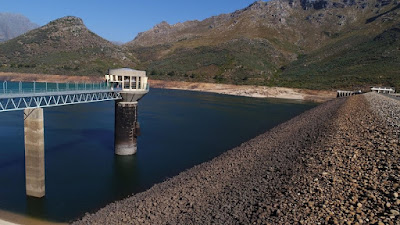The Politics of Water: an introduction to the blog
Hello and welcome to The Politics of Water: African Hydropolitics and Governance. As the name might suggest, in this blog we will be covering some major case studies from across the African continent. From a major drought crisis in South Africa, looking at the political causes and management of the crisis, to a hydropolitical situation spanning one of the world's longest rivers - the Nile. Water is arguably one of the world's most precious resources: crucial to human life and development, and for this reason
Contrary to common peoples beliefs, it is often the political management of water supplies that causes the drought crisis associated with Africa rather than an environmental lack of the resource. My interest in water and politics comes from an interest in the human ecology of shared resources. Within human ecology, I am particularly captivated by Hardin's 1968 theory the Tragedy of the Commons, which is still very applicable and insightful to many of Africa's issues.
The Tragedy of the commons looks at how humans interact with shared resources - often leading to excessive use and degradation. Hardin's theory stated that when humans achieve equitable and sustainable use, resources will not be depleted, but often the 'tragedy' occurs when communities use resources in excess, until they are destroyed. My interest with water and politics is from a similar stand point - how does human use of shared water resources, and claims to different stakes, impact the supply for others and the quality of the source? Throughout this blog series we will take a look at several examples of excessive use and controversial claims to shared resources, extending our knowledge of hydropolitical interactions and assessing the vast scale of African water management through several focused case studies.
 |
| Theewaterskloof Dam, Western Cape |
This is why I have chosen to study Water and Politics - this won't be a blog of suggestions of how to manage water supplies, but simply a study of how political decision making and population governance impacts African water supplies. We'll take a look at some well managed water resources, through policy and communal understanding of usage limits, and then focus on some case studies of international and intra-national water crisis. By looking at these case studies and the political systems in place, we can begin to build a picture of the hydropolitical climate of Africa within current and unfolding situations.
The next blog will be studying an intra-national water crisis - the drought in Cape Town this year, to see how national water management policy (or lack of) can cause crisis. I look forward to seeing you then!


Comments